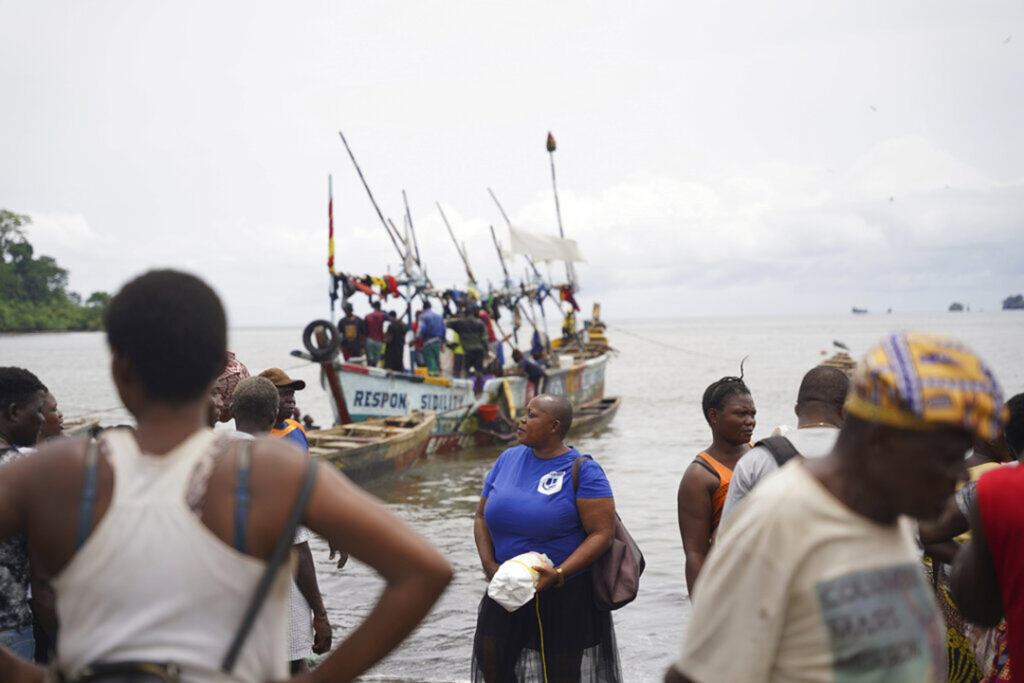ADF STAFF
A growing number of foreign-owned vessels with a history of illegal fishing are flying Cameroon’s red, yellow and green flag.
An Associated Press (AP) investigation found that 14 vessels hoisting Cameroonian flags are owned or managed by companies in Belgium, Cyprus, Latvia and Malta. Each vessel switched flags to Cameroon between 2019 and 2021.
At least six of the vessels and their owners are known to underreport their catch, fail to declare where it goes and disclose who benefits financially from it.
Foreign fishing boats commonly “flag in” to African nations, meaning they use and abuse local rules to flag a foreign-owned and -operated fishing vessel into an open registry. They often fish in local waters, but the vessels investigated by the AP are not fishing in Cameroon.
There is little oversight of the online open registries. This means that a foreign fishing company can register to fish in Cameroon and electronically pay a registration fee. The is often called flying a “flag of convenience.”
“They’re interested in the flag. They’re not interested in Cameroon,” Beatrice Gorez, coordinator for the Coalition for Fair Fisheries Arrangements, told AP. The coalition, a group of organizations that illustrates the effects of European Union-African fisheries agreements, identified the connection between companies in EU member states and Cameroon.
One of the vessels flying Camerooon’s flag is the Trondheim, a massive trawler that scours the West African coast for mackerel and sardines.
The Trondheim operated under the name King Fisher when it sailed under the flag of St. Vincent and the Grenadines before it switched flags to Georgia, the former Soviet republic. The vessel has flown Cameroon’s flag since 2019, AP reported.
Ships flying Cameroon’s flag are supposed to abide by the country’s fishing agreements with other nations, but weak governance and lack of surveillance capacity makes that difficult, experts say. It is a common issue around West Africa, where illegal marine trade costs almost $1.95 billion across the fish value chain and $593 million per year in household income.
Illegal fishing practices decimate rapidly diminishing fish populations, destroy ecosystems and drive other crimes such as piracy, kidnapping and drug trafficking.
Haven for Illegal Fishing
Due to its open registries, low surveillance capacity and other security issues, Cameroon, like many West African nations, has long been a haven for illegal, unreported and unregulated (IUU) fishing.
An estimated 70 industrial fishing vessels operated in Cameroon in 2021, most of which were Chinese or Nigerian, according to research by Maurice Beseng of the United Kingdom’s University of Sheffield.
Beseng, an environmental social scientist, found that some artisanal and industrial vessels in Cameroon were intercepted and used for smuggling fuel, weapons and illegal migrants. Many of the weapons smuggled into Cameroon come from Nigeria.
The foreign vessels are known to fish in areas designated for artisanal fishing, use prohibited chemicals, fail to declare catch data, submit fraudulent documents to fish and bribe local officials.
Such practices lead to rampant overfishing and destruction of ecosystems while hindering Cameroon’s efforts to stimulate its “blue economy.” The presence of foreign industrial trawlers in Cameroon also threatens the livelihoods of more than 200,000 people who work in the fisheries sector.
In 2017, Cameroon’s government tallied the overall cost of illegal fishing at $33 million a year.
The EU issued Cameroon a yellow card in 2021 after determining that the country’s level of development and engagement against IUU fishing was inadequate. A yellow card is a formal warning that could lead to a total ban on seafood exports from the country to the EU.
“It is unfortunate that Cameroon has not been able to ensure proper control of fishing activities happening under its flag,” Virginijus Sinkevičius, EU commissioner for environment, oceans and fisheries, said at the time.

